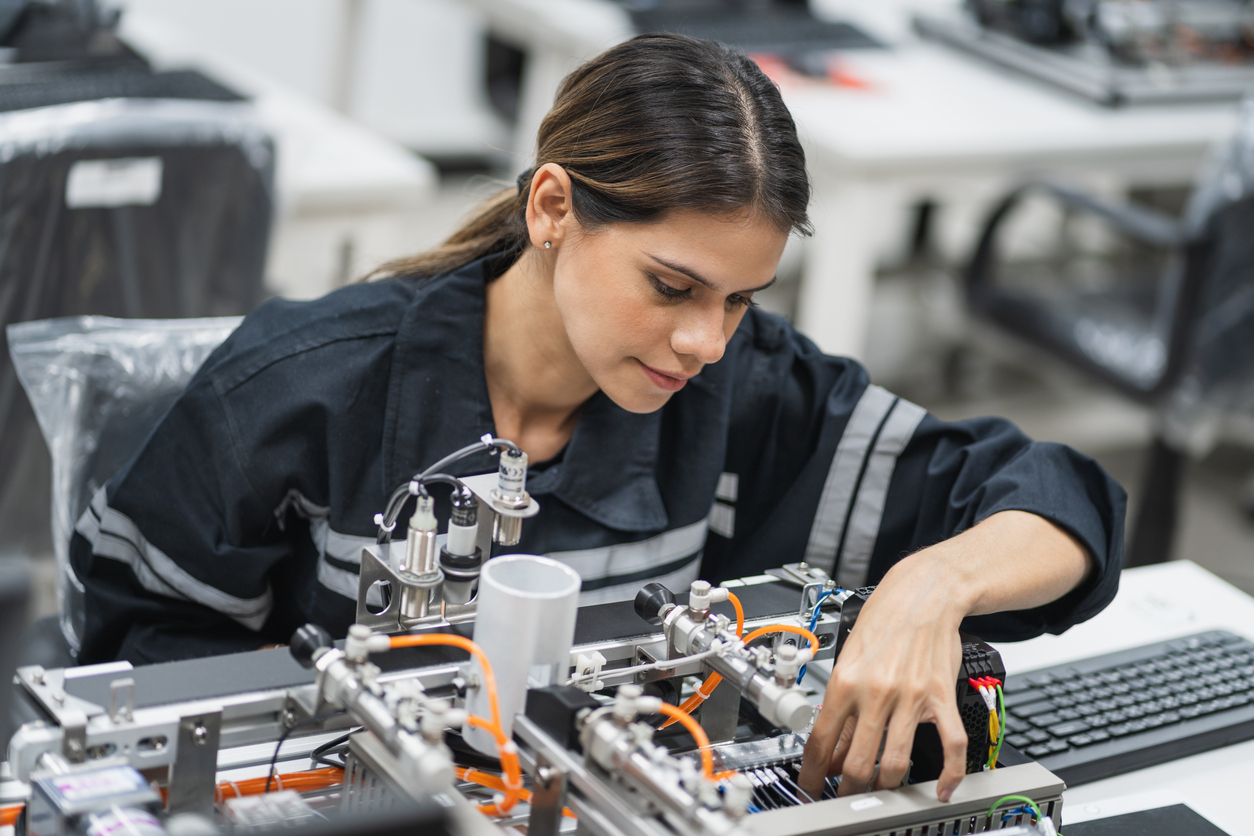Electronic Systems Technology Certificate Overview
Electronics systems technology refers to the field of knowledge and skills involved in building, testing, and maintaining electronic systems and devices. Electronics systems are devices or networks that use electronic components like integrated circuits (ICs), transistors, resistors, and capacitors to perform tasks. Electronic systems play a critical role in modern manufacturing processes, enhancing efficiency, precision, and automation.
Electronics systems technology involves understanding how electronic components work together to create functional devices and systems. It includes knowledge of circuits, signals, and how to apply electronic principles to solve real-world problems.
Electronics systems technicians perform a variety of key functions in industry including
- Troubleshooting: Checking that electronic systems work correctly and diagnosing problems when they don't, ensuring reliability and performance.
- Integration: Combining different electronic components and subsystems to work together seamlessly within a larger system.
- Maintenance and Repair: Keeping electronic systems operational by replacing faulty components or adjusting them to improve performance.
Electronics systems technology is used in a wide range of applications in modern manufacturing such as:
- Control Systems
- PLC (Programmable Logic Controller) Systems: Electronic devices used to automate machinery and processes in manufacturing. They monitor inputs (sensors) and control outputs (actuators) based on a program, ensuring consistent operation and rapid response to changes.
- Robotics and Automation
- Industrial Robots: These electronic systems consist of sensors, actuators, and control systems that enable precise and repetitive tasks such as welding, assembly, painting, and packaging. They improve production speed, quality, and worker safety.
- Automated Guided Vehicles (AGVs): AGVs are electronically controlled vehicles used to transport materials within factories autonomously. They optimize logistics and reduce manual labor in material handling.
- Quality Control Systems
- Vision Inspection Systems: These electronic systems use cameras and image processing software to inspect manufactured parts for defects, ensuring quality standards are met without human intervention.
- Measurement and Monitoring Systems: Electronic devices like coordinate measuring machines (CMMs) and gauging systems measure dimensions and characteristics of parts with high accuracy, maintaining consistency and compliance with specifications.
It's a field that combines creativity with technical expertise to drive innovation and solve practical challenges.
Program Highlights
- Find local employment at one of the many facilities in our 10-county service area
- These skills are highly transferable to other industries
- All courses transfer into one of Rhodes State’s Associate of Applied Science degrees in Engineering Technology.
- This program will use the equipment in our new Advanced Manufacturing Center that includes autonomous vehicles, vision systems, advanced PLC training, and robotics.

